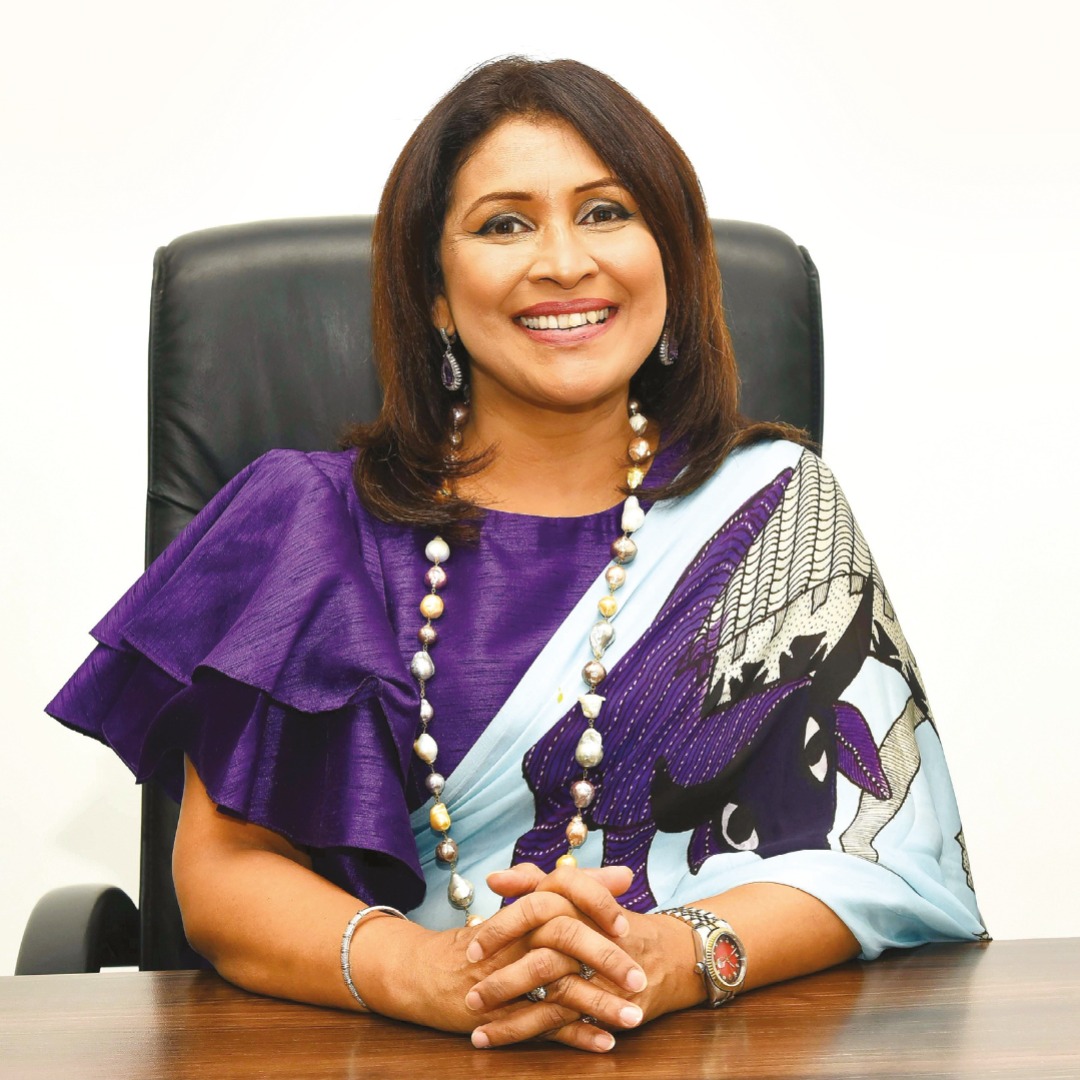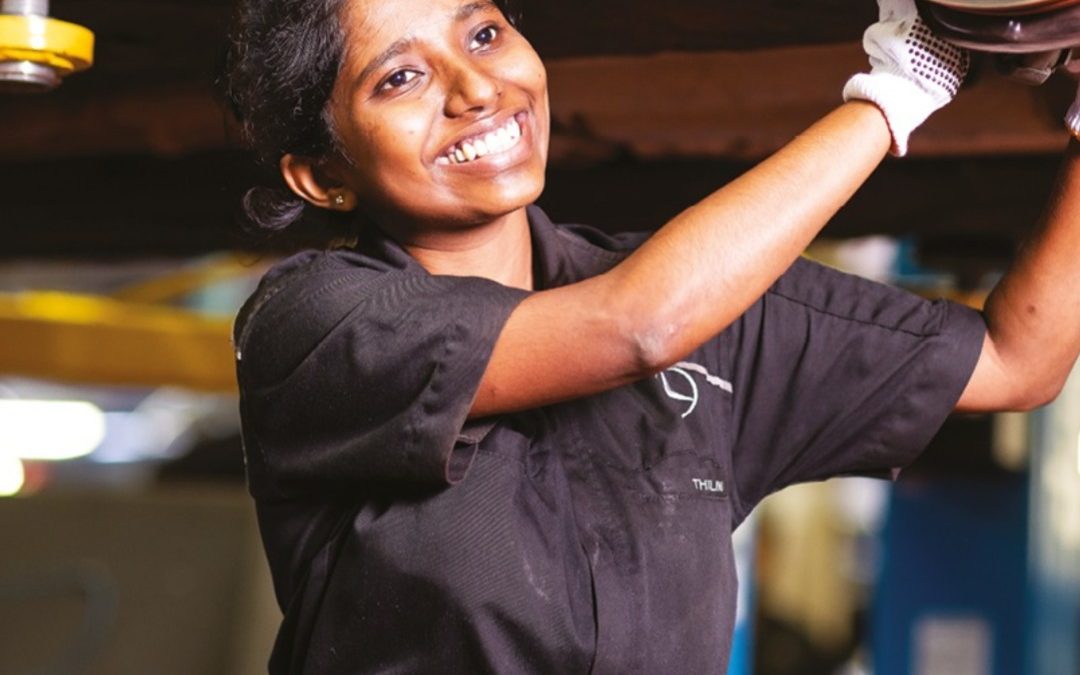DIMO
 Q: What is the extent of women’s participation in non-conventional fields in Sri Lanka?
Q: What is the extent of women’s participation in non-conventional fields in Sri Lanka?
A: There is a growing trend for women to enter non-conventional fields such as general engineering, IT, automobile engineering, medicine, plantation management, aviation and so on
although the societal gender bias prevails.
However, many women remain at the bottom of the pyramid while only a handful have been able to reach the top.
Amongst other initiatives, the priority is training males to accept female colleagues as equals, become allies by changing social perceptions and bias, and introducing more inclusive primary and secondary education for all to transform perceptions on gender roles.
Q: From a woman corporate leader’s perspective, how do you view the business climate?
A: The business climate is changing with organisations adapting to new ways of working globally. With the exposure gained from the outbreak of COVID-19, corporates are trying to reinvent business models.
I envision diversity at decision-making levels helping organisations take more relevant and informed decisions since 70 percent of purchasing decisions today are made by women.
Q: And are women being supported to maximise their potential?
A: The simple answer is ‘no’ but it depends on the industry, organisation, family, community and so on.
It’s true that much of society considers a woman to be a dependent wife or supplementary earner. Therefore, skill and knowledge development to the fullest potential isn’t considered a priority for women.
Q: What is your opinion on women’s representation in the public and private sectors?
A: Female representation in the workforce is approximately 35 percent – including the country’s informal sectors. As far as the education, banking, apparel and agriculture sectors are concerned, there is more female participation at entry level jobs due to social bias relating to gender roles.
Although we see a few women at the highest levels in the private and public sectors – such as in the parliament or on company boards – it is not a significant representation. It’s sad to see that the 56 percent of women comprising the voter base is represented by only five percent in the legislative arm.
The problems women face and solutions required are best known to them. Therefore, it is appropriate to have more diversity in any country’s legislative arm.
Similarly, there is an eight percent representation of women on the boards of quoted companies in Sri Lanka and I’m certain this will change if more organisations understand that diversity is not only the right thing to do but also makes good business sense.
Q: What barriers do businesswomen face when going global?
A: Networking is a very important requirement for success in business as it provides crucial information, opens doors and creates opportunities globally – but it’s usually out of reach for women.
At times, limited access to capital and funds is another barrier for women entrepreneurs although some banks are addressing this factor now.
Managing their work-life balance is the other major factor hindering women’s capacity to go global.
Q: How can organisations address the loss of women employees in mid-career?
A: Organisations lose female employees in mid-career mainly due to the lack of an optimal work-life balance. The perception that women are dependent or their income is secondary to the family may force them to leave their jobs at crucial points in their lives.
However, progressive companies have implemented policies that support women – and established and sustained women network and employee resource groups to gender sensitise workplaces among many other initiatives.
Such organisations sponsor and mentor women employees, and offer flexi hours, work from home (WFH) and other support.
They include daycare facilities, extended maternity leave, paternity leave, dinner from their canteens or reimbursements for dinner and transport facilities when they work extended hours to encourage women to achieve a healthy work-life balance.






